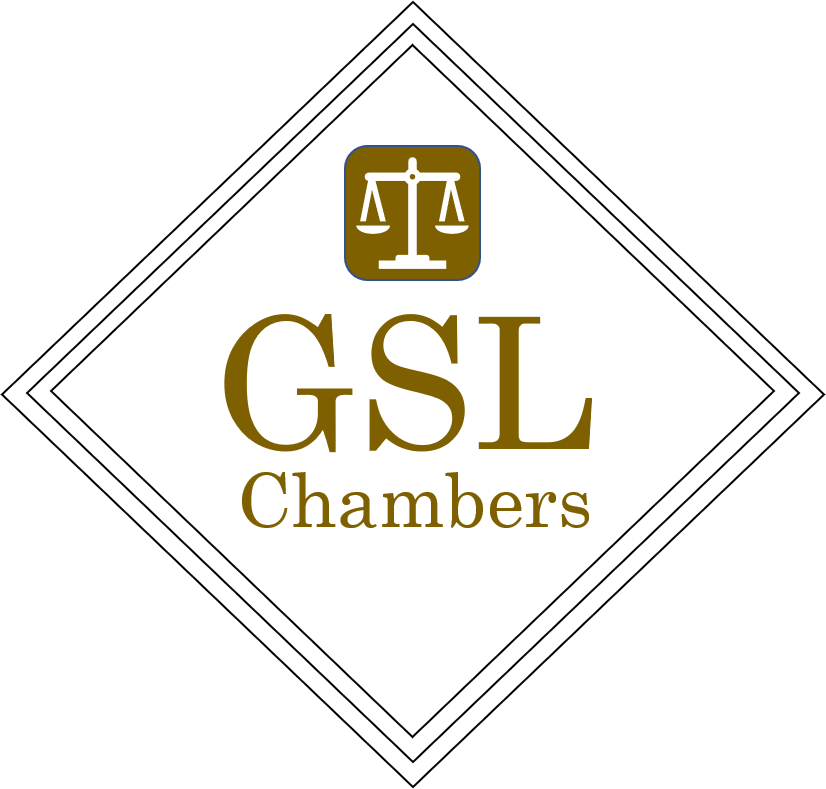–Abhinav Shrivastava & Shivang Rawat*
The Hon’ble Supreme Court of India in the case of Securities and Exchange Board of India vs. Mega Corporation Limited, Civil Appeal No. 2104/2009, clarified, inter-alia, the scope and ambit of statutory appeal under Section 15Z of the Securities and Exchange Board of India Act, 1992 (‘Act’).
While the Court acknowledged that the appellate jurisdiction is curtailed to determining only question of law, it observed that the examination of which issues qualify as questions of law, and which do not is important.
In the aforementioned case, the Hon’ble Supreme Court has formulated the scope of Section 15Z of the Act while taking into consideration the judicial precedents, definitions, and other interpretations.
Securities and Exchange Board of India vs. Mega Corporation Limited
Facts & History
Mega Corporation Limited (‘Company’/ ‘Respondent’) is listed on the Bombay Stock Exchange (‘BSE’) and is engaged in the business of radio taxi service, coupled with trading of shares in a small measure till 2004.
SEBI’s attention was drawn to the unusual movement of the Company’s scrip, owing to which SEBI directed investigation while passing an ex-parte ad interim order under provisions of Section 11 of the Act against the Company, its promoter-directors, some of its clients, stockbrokers, and depositors. After hearing the objections, the interim orders were confirmed, and a show-cause notice for violation of the SEBI (Prohibition of Fraudulent and Unfair Trade Practices Relating to Securities Market) Regulations, 2003 (‘PFUTP Regulations’) was issued. Eventually, SEBI passed an order observing that the Company had violated provisions of the Act and the PFUTP Regulations, and thereafter exercising its powers, SEBI restrained the Company from accessing the capital market in any manner and its directors from dealing in securities for one year.
Thereafter, the Company preferred an appeal under Section 15T of the Act before the Tribunal. However, after re-examining the circumstances which became the rationale for SEBI’s decision, the Tribunal allowed the appeal of the Company by observing, amongst others, that the unusual profits, if any, made during the year 2004-05 by itself cannot constitute any transgression of law. The Tribunal further held that extraordinary profits in itself cannot be the basis for concluding that the Company’s accounts are manipulated with a specific objective to mislead the investors. Hence, considering the facts in depth, the finding of SEBI was reversed.
SEBI then preferred an appeal before the Hon’ble Supreme Court wherein the Court while dismissing the appeal, clarified, inter-alia, the scope and ambit of statutory appeal under Section 15Z of the Act.
As per Section 15Z of the Act – Any person aggrieved by any decision or order of the Securities Appellate Tribunal may file an appeal to the Supreme Court within sixty days from the date of communication of the decision or order of the Securities Appellate Tribunal to him on any question of law arising out of such order : Provided that the Supreme Court may, if it is satisfied that the applicant was prevented by sufficient cause from filing the appeal within the said period, allow it to be filed within a further period not exceeding sixty days.]
Rationale
The Court at first placed reliance on the case of Videocon International[1] wherein a similar issue with respect to the scope and ambit of statutory appeal under Section 15Z was considered. In the Videocon International[2], the Hon’ble Supreme Court observed that-
“38. …..A right of appeal may be absolute, i.e., without any limitations. Or, it may be a limited right. The above position is understandable, from a perusal of the unamended and amended Section 15-Z of the SEBI Act. Under the unamended Section 15-Z, the appellate remedy to the High Court, against an order passed by the Securities Appellate Tribunal, was circumscribed by the words “…on any question of fact or law arising out of such order”. The amended Section 15-Z, while altering the appellate forum from the High Court to the Supreme Court, curtailed and restricted the scope of the appeal, against an order passed by the Securities Appellate Tribunal, by expressing that the remedy could be availed of “…on any question of law arising out of such order.”. It is, therefore apparent, that the right to appeal, is available in different packages, and that, the amendment to Section 15-Z, varied the scope of the second appeal provided under the SEBI Act.”
It was in this case where the Court observed that appellate jurisdiction is curtailed to determining only a question of law.
Thereafter the Court went onto look at the textual interpretation of the question of law through the Black’s Law Dictionary –
“1. An issue to be decided by the judge, concerning the application or interpretation of the law;
- A question that the law itself has authoritatively answered, so that the Court may not answer it as a matter of discretion;
- An issue about what the law is on a particular point; an issue in which parties argue about, and the court must decide what the true rule of law is;
- An issue that, although it may turn on a factual point, is reserved for the court and excluded from the jury; an issue that is exclusively within the province of the judge and not the jury”
The Court observed that the ‘question of law’ is an open textual expression which is used in statutes to convey a meaning which the legislature would not have intended to be read in a scrupulous way.
The Hon’ble Court further took into consideration the case of Reserve Bank of India vs. Peerless General Finance Investment Company Ltd. & Ors.[3], while observing that when words of the Sections allow narrow as well as wide interpretations, courts of law have developed the art and technique of finding the correct meaning by looking at the words in their context.
The Court further observed that the jurisdiction of the Supreme Court in real sense should be drawn from the ‘context’ of powers and jurisdiction of the Tribunal under Sections 15K, 15L, 15M, 15T, 15U and 15Y of the Act.
The Hon’ble Court then went on to consider the case of Clariant[4] and National Securities Depository[5], and observed that the Tribunal has wide powers, being a permanent body, apart from acting as an appellate Tribunal on fact, the Tribunal routinely interprets the Act, Rules and Regulations made thereunder and evolves a legal regime.
At last, the Court went on to observe that “the freedom to evolve and interpret laws must belong to the Tribunals to subserve the regulatory regime for clarity and consistency and it is with this perspective that the Supreme Court will consider appeals against judgment of the Tribunals on questions of law arising from its orders.” The Court also placed reliance on the case of Jones v. First Tier Tribunal[6], wherein certain principals were formulated for intervention and considering the same the Hon’ble Supreme Court also formulated certain principals to be followed with respect to the scope of appeal under Section 15Z of the Act.
Findings & Scope
In Paragraph No. 20 of the judgment of the instant case, the Hon’ble Court has formulated the scope of appeal under Section 15Z and as per the same-
- The Supreme Court will exercise jurisdiction only when there is a question of law arising for consideration from the decision of the Tribunal. A question of law may arise when there is an erroneous construction of the legal provisions of the statute or the general principles of law. In such cases, the Supreme Court in exercise of its jurisdiction of Section 15Z may substitute its decision on any question of law that it considers appropriate.
- However, not every interpretation of the law would amount to a question of law warranting exercise of jurisdiction under Section 15Z. The Tribunal while exercising jurisdiction under Section 15T, apart from acting as an appellate authority on fact, also interprets the Act, Rules and Regulations made thereunder and systematically evolves a legal regime. These very principles are applied consistently for structural evolution of the sectorial laws. This freedom to evolve and interpret laws must belong to the Tribunal to subserve the Regulatory regime for clarity and consistency. These are policy and functional considerations which the Supreme Court will keep in mind while exercising its jurisdiction under Section 15Z.
Conclusion
Although there are ample of judgments in place with respect to the scope and ambit in appeals, and more specifically the Supreme Court to decide over the question of law, there always has been recurrent issue as seen in the various cases – as to what would constitute the question of law.
The case of SEBI vs Mega Corporation Ltd.[7] has formulated the scope of Section 15Z of the Act, which will render clarity upon the issues which would qualify as questions of laws, or not. It is going to be a guiding precedent, not just in the field of Security Laws but otherwise as well.
[1] Videocon International Ltd. v. Securities Exchange Board of India (2015) 4 SCC 33
[2] ibid
[3] Reserve Bank of India vs. Peerless General Finance Investment Company Ltd. & Ors. (1987) 1 SCC 424
[4] Clariant International Ltd. and Anr. v. Securities and Exchange Board of India (2004) 8 SCC 524
[5] National Securities Depository Ltd. v. Securities Exchange Board of India (2017) 5 SCC 517
[6] Jones v. First Tier Tribunal [2013] UKSC 19
[7] Securities and Exchange Board of India vs. Mega Corporation Limited, Civil Appeal No. 2104/2009
*Abhinav Shrivastava is a Co-Founding Partner of GSL Chambers. Shivang Rawat is an Associate at GSL Chambers.




